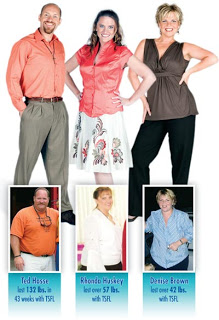Dieting Stifles Creativity Hypnosis To End Self Expression Through Eating
Emotional eating habits that keep us overweight with the subconscious programming that causes us to stuff our feelings with food. In this article, we will explore another common pattern among overweight people: the use of food to substitute for creative expression. Abraham Maslow, one of the founders of humanistic psychology, is often credited with describing creativity as a basic human need comparable to the needs for food and shelter, in his theory of the hierarchy of needs. Although his theory remains controversial, I have experienced with many clients that this need appears to be very real. Children, we notice, are constantly involved, if given the opportunity, in creative play. We adults, however, have frequently learned to suppress our creative instincts, and all too often, to substitute eating for creativity. Here's a questionnaire to determine if this is a pattern you or a friend has experienced.
? Do you find yourself eating out of sheer boredom?
? Do you watch two or more hours of television per day?
? Do you lack an exciting hobby or creative interest?
? Do you put down your occasional experiments in creative expression as amateurish or a waste of time?
? Do you often eat snacks while reading or watching television when you are not truly hungry?
If you answered any of these questions in the affirmative then you may suffer this type of programming. Chances are that this programming began in childhood, when our caregivers, instead of encouraging our creativity, suppressed this essential self-expression with harsh criticism, neglect, or even ridicule. While these experiences may have long ago passed out of our conscious recollection, the subconscious mind does not forget. So these programs can continue to strangle our creativity throughout our lives.
The solution? Through hypnosis therapy we can use simple instructions to access these memories in the subconscious mind and rescue the child from these events. Then we provide that inner child with new experiences of being loved and supported for their creative expression by an inner family or by the client's adult self.
For example, Bob finds eating in front of the television in the early evening a bad eating habit he wishes to change. He can't remember ever having a hobby. We descend in a light trance to the first time his creativity was made wrong. He discovers a memory in which as a small boy he is ridiculed by some neighborhood boys for his drawings, which they label as 'silly and girlish.? Feeling intensely ashamed, he determines to stifle these expressions. Our first task is to rescue this boy from these boys and let his adult self and the therapist assure him that his drawing ability is a wonderful gift. We then insert the counter-programming suggestion that his drawings are an expression of his 'manliness and courage.? This will help erase the core belief implanted by these boys.
Next we take his drawings to his parents in hopes of winning their approval for his art. I ask if his parents would like to hang his pictures on the fridge. Their response is cool, since mother is obsessed with her own pain and dad is a ?busy? alcoholic. In this case, my client took great pleasure in firing his father. Then he addressed his mother with a tearful appeal for her support, before realizing that she would have to be retired and replaced with his adult self. These intensely emotional confrontations with parental figures is often unpleasant for my clients but is essential in helping the inner child to disengage from the need for parental approval, and to help the child bond to the adult self, and, where necessary, to new inner parents.
Then I encouraged Bob's adult self to access this child through gentle self hypnosis techniques for a few minutes in the early evening and create some drawings. I greatly increased our chances of success by encouraging him to buy brightly colored magic markers and quality pens, pencils, and drawing paper. We also determined what room in the house is best for some quiet and undisturbed creativity. I then instructed his adult self to enjoy this creative activity, which he will find so much more exciting than the television, while praising his inner child for the effort. This is not the time for a critical evaluation, but for warm encouragement. I instructed him to bring one of his drawings to me, and to hang all of them on his frig at home. Soon his television watching was down by more than half, and so were the eating patterns.
Of course, we need to remind clients over and over that producing a Van Gogh is not the goal of the process. Nor do we use the oft-repeated mantra ?practice makes perfect? which has destroyed thousands of creative inspirations in my opinion. The real goal is feeling good while expressing one's creative instincts. To the extent that the client's friends and family can be enrolled in support of this creative expression, we encourage this involvement. But the client's adult self is the primary resource for this process.
For some clients whose belief system includes reincarnation, we can journey back to a past life in which the client was engaged in a specific creative activity which is of interest to the client. After accessing a creative ability which the client is ready to bring forward, we can enter these abilities into the body of the client for instant access. Some of the abilities brought forward include piano playing, dance, art, even leadership skills and public speaking. Of course there is no substitute for practicing these abilities, and classes in creativity are also to be encouraged. But this process makes it much easier and more fun to develop these abilities with a minimum of drills and lessons. Obviously, the development of these creative abilities does far more for my clients than simply altering their eating habits. These gifts enrich lives at every level.
This outlines some of the ways we can solve the problem of emotional eating habits. While there are many sources of destructive emotional eating habits besides those mentioned here, the vast majority of my clients in 25 years of experience in hypnotherapy have some problem with infantile eating, stuffing feelings with food, and suppressing creativity.
We hypnotists do not offer a magic bullet, a simple pill to cause weight to fall off. All of our methods should be used in conjunction with a well informed plan for diet and exercise, hopefully with the guidance of a medical doctor or other health professional. These hypnotic techniques can however, make the difference between a lifetime of dieting and weight obsession and having lifelong healthy eating and living habits which can allow your life to be about many things?but not about controlling your appetite and your eating. Good luck on your journey.
-
The Battle Of The Scale: Understanding Weight Variance
In an ideal world, our w
-
Weight Loss - Programs And Your Drive
If you want to lose weight then you have to put in the necessary effo
-
Fast Weight Loss Tips To Get Rid Of Overweight
Quick weight loss has been proven to be more effective than slow weig
-
Sweets After Weight Loss Sugery Smart Choices
Sweets are a real problem for people who have undergone gastric bypass
-
Losing Weight Naturally – 3 Big Advantages Of Using Your Local Gym…
I sincerely believe that just so long as you have the commitment an
-
3 Fast Weight Loss Tips That Work
Looking to lose some pounds quickly? Fast and safe weight loss is poss
- DON'T MISS
- There is Help for Binge Eating Disorders
- Understanding Your Body and Seeing Results
- Weight Loss Methods - Diets That Work For Her
- What Is The Best Weight Loss Program Out There
- Unusual Fat Loss Methods That Actually Work
- How to Lose Weight Fast Using Weight Loss Hypnotherapy
- What抯 a Good Raw Diet for Your Health?
- Bring Back Your Slim & Youthful Form By Applying The Varied Fast Diet And Weight Loss Programs
- Research Confirms Drinking Relieves Stress
- Weight Loss Myth? Skipping Meals is a Good Way to Lose Weight




